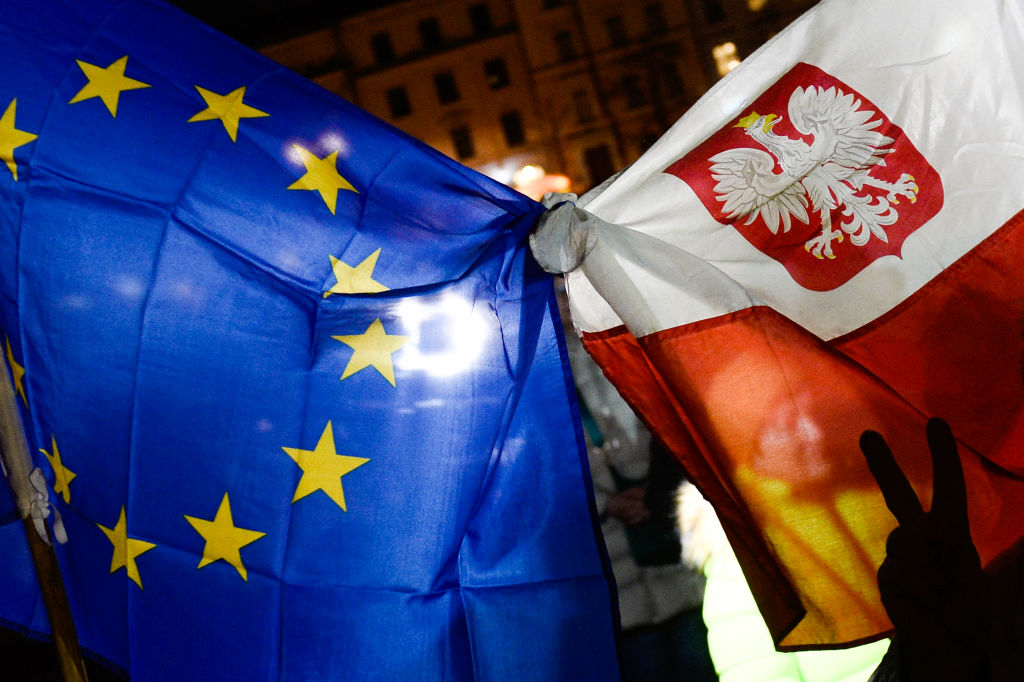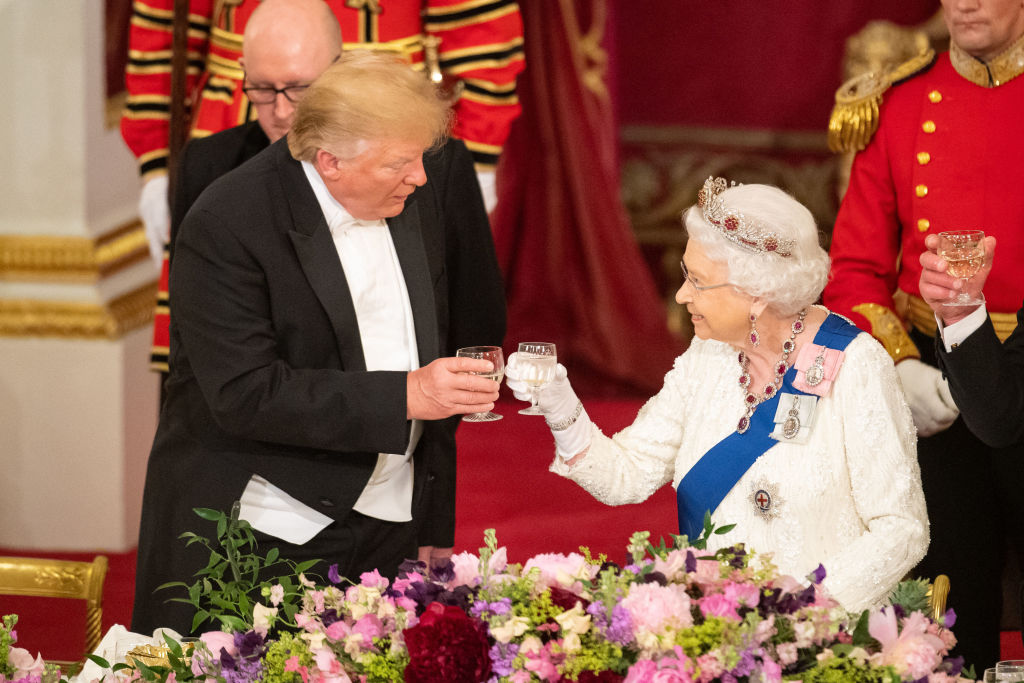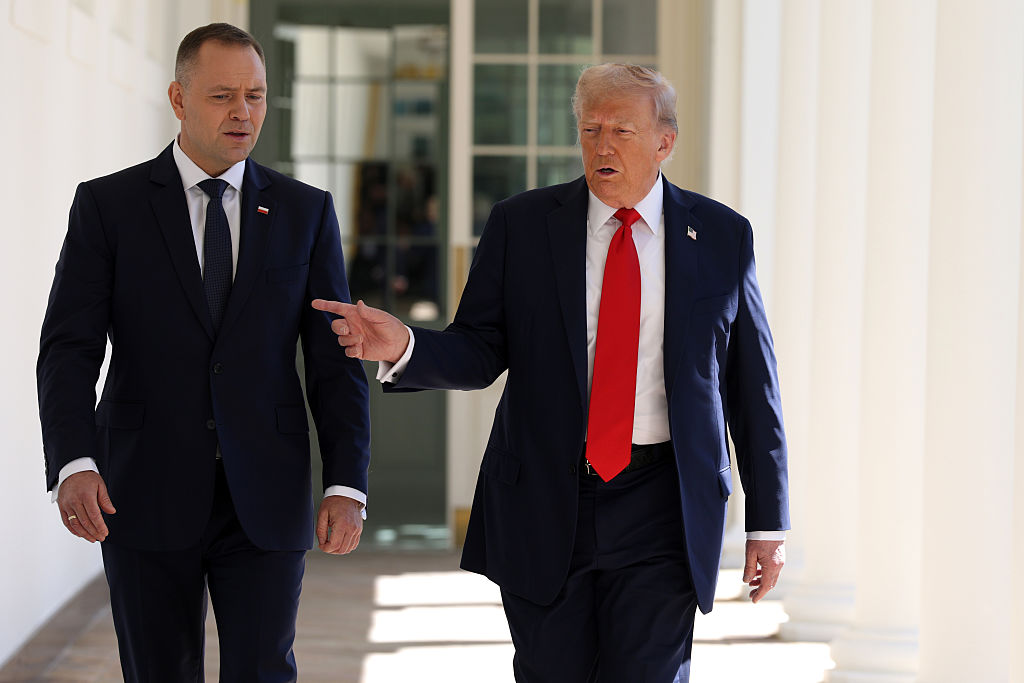With Britain leaving the EU, Brussels is adopting a new assertiveness — but Poland and Hungary are fighting back. The two countries are plotting a strategy of vetoing the EU’s latest budget because of a mechanism attached to it allowing the bloc to withhold money if a country falls short of its standards. Poland and Hungary fear that this measure could leave them vulnerable if Brussels doesn’t like their domestic legislation. But this drama is about more than just money — it also shows the direction Euroskepticism is heading in after Brexit.
Without Britain’s influence, Euroskepticism is now beginning to take on a new form — more cultural, and less economic. Poland and Hungary, both net beneficiaries of EU budgets (where the UK was a net contributor) have persuasive reasons to remain within the bloc as an economic entity. However, their experience of having lived under communist regimes leads them to approach external cultural influences with caution. Polish PM Mateusz Morawiecki encapsulates this best in his view that: ‘Europe is great when it is a Europe of Homelands’ — a union of ‘somewheres’, rather than a playground for ‘anywheres’.
Underpinning his government’s criticism of the mechanism contained in the EU’s budget is a conviction that this measure lacks a Treaty basis. Poland fears that such a vague, open-ended provision means even a suspected transgression might offer a pretext for financial penalization of ideological non-conformity. Stubborn pro-sovereignty attitudes in Poland and Hungary — both recently-emerged from communist oppression — may yet achieve what David Cameron’s renegotiations failed to: stalling an ‘ever-closer union’, and helping point to a new vision of EU membership.
Is this the beginning of ‘Polexit’? Donald Tusk, who recently talked about a ‘Russian Strategy for breaking up the EU and promoting the geopolitical isolation of Poland’, appears to think so. But a policy document from the ruling Law & Justice (PiS) party on ‘An Efficient and Modern Nation for 2030’ — which clearly foresees Poland’s long-term EU presence, even if some potential funding for 2021-27 is lost — suggests that the plan is not to leave the EU but to change it from within. Given that 80 percent of Poles wish to remain in the EU — and only one in 10 voters support Polexit — this seems like the most likely approach. It also surely encourages leaders seeking ‘to do a Cameron’: working from within to discourage further EU political integration, rather than leave altogether.
Polish voters share many more values with traditionally-minded, Catholic Europeans (like the ones who first set European integration in train) than they do with either the Orthodox, Czarist Russia that helped partition the country out of existence for 123 years; or the communist titan that invaded it first (non-victoriously) in 1920, then in 1939, and finally in a reimagined ‘liberator’ role in 1945, after which the ‘Iron Curtain’ promptly descended. Much of Polish society simply sees itself as maintaining the Western, Christian values once taken as read around their continent, but now eschewed in a dash for a somewhat-nebulous ‘progressive’ modernity.
Law & Justice heads a coalition whose United Poland faction is led by justice minister Zbigniew Ziobro. He told the Polish PM earlier this year that ‘the so-called rule-of-law provision, if it were to be passed, would radically damage the status and position of Poland in the EU for decades’. ‘We both know that this isn’t really about the rule of law, which is only a pretext, a beautiful phrase which is easy on the ears, but what this is really about is the institutional, political slavery of the Polish nation,’ he added in the letter to the PM. Both Ziobro and Morawiecki hope to lead conservative politics when 71-year-old Jarosław Kaczyński steps down, ostensibly at the end of the current parliament. Ziobro left PiS to found his own party after a tiff with Kaczyński, and is ever-eager to display his culturally conservative credentials. Morawiecki is a former finance minister whose conservatism is more fiscal. An EU budget with a rule-of-law clause clearly touches on the ambitions of both.
It is not only those on the Polish right who are unhappy with the EU’s plans though. Intriguingly, Rafał Woś, a Polish journalist on the left, is now praising Poland’s refusal to settle for second-class member status, and its desire to negotiate European policy assertively. Condemning persisting disparities in an EU that took in most of Eastern Europe 13 to 16 years ago, he discerns a seamless transfer of ‘bogeyman’ status: from lazy Southerners prolonging the economic crisis to Eastern rule-of-law villains.
[special_offer]
But there is hope for Poland and Hungary in this battle: if they can stall negotiations long enough, they might also receive a warmer response from a Portuguese presidency, with Portugal’s socialist prime minister already attacking the rule-of-law provision. Coupled with Poland’s Three Seas Initiative (which is a strategy aimed at developing infrastructure in central Europe), the tough stance over the veto may indicate a new foreign-policy direction.
Whether it intends it or not, Poland is ripe for regional-leader status: it has Hungary as a crucial EU ally, close relations with Ukraine and pro-democracy Belarusians, and a tangible defensive alliance with America. Over a million Ukrainians worked in Poland in 2019, and now new law will offer Belarusians ‘humanitarian visas’, with job opportunities in healthcare or IT not dependent on a work permit. Poland thus positions itself as both democratic beacon and helpmate for neighbors beyond the EU’s ‘external frontier’.
As such measures boost an economy less COVID-hit than most, they also generate a new group sympathetic to Polish visions of localism, sovereignty and economic opportunity. Will other countries join Poland and Hungary in taking a tough stance against the (Old) EU? It remains to be seen. But what looks quite conceivable is that, hot on the heels of Brexit, and in the longed-for aftermath of the pandemic, Poland will be spearheading a new vision for the EU which is far from fringe.
Anna Richards grew up in a British-Polish family in Warsaw. This article was originally published on The Spectator’s UK website.

























